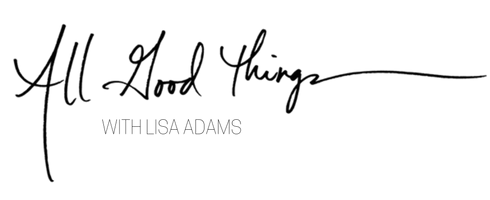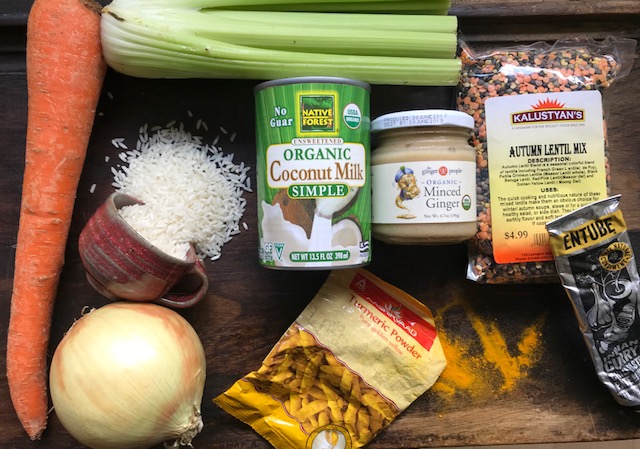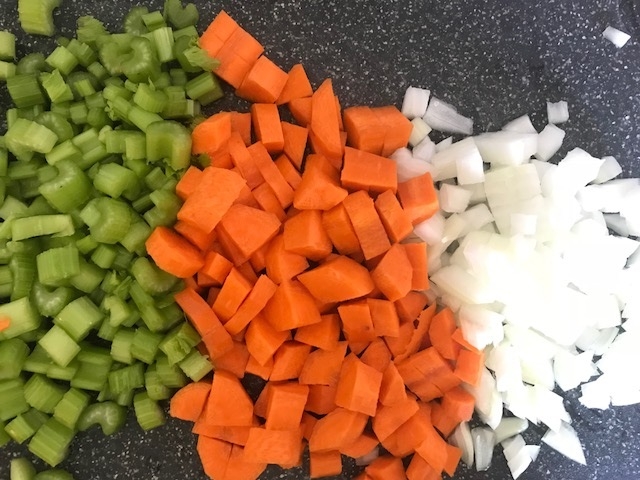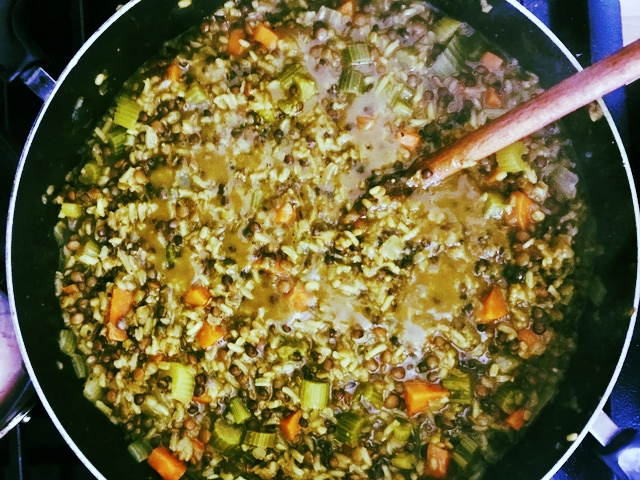I love a challenge. Don’t get me wrong, I also love when things are super easy. But let’s be honest, very few things of value come to us easily. So I go after things. Relationships, clients, bookings, fitness, money, opportunities... the good stuff. The hard stuff.
In my cooking business, it thrills me to help someone achieve better health through the food I provide for them. Oftentimes they come to me with restrictions and they’re overwhelmed with doctors’ orders to eliminate sugars, flour, dairy, etc.
In the kitchen, when I get a list of dietary No-No’s, I try not to focus on what my clients can’t have, but instead, I let the culinary world open up to what is actually available. Those are the times I dig for the Yes. I try to sift through the deprivations to find imaginative substitutions. It’s my chance to get creative, research, and experiment. No means Yes.
I try this in my everyday life too when I am rejected for a job or a relationship. One No makes me available for every other Yes out there. It’s kind of empowering to frame it that way. (It doesn’t always work, this reframing. I’m also a champ at throwing pity parties and wallowing in notsogreat circumstances.)
Cooking for someone who has a list of food needs that seems limiting is when I do some of my best work. Yes, it may seem like you’ve been sent off to a construction site without a hammer, a saw, and a tape measure - but how powerful are the tools of sugar, white flour, and animal-derived dairy? Delicious, satisfying, indulgent? Most definitely. But they can be one-dimensional foods that do very little in building strong and healthy bodies. There is an infinite number of alternative foods we can choose that are powerful multi-dimensional tools. No means Yes!
I have a new client and a dear friend, Katie, who I am helping with an Ayurvedic diet that has been prescribed by her nutritionist to achieve optimum health. What’s Ayurveda? The word Ayurveda is composed of two words of Sanskrit, ayur (meaning life) and veda (meaning knowledge).
Chef Meredith Klein is an Ayurvedic practitioner and has been a huge resource for me.
In the book Find Your True Fork, she says that “Ayurveda is an ancient approach to health and wellness developed by sages of India thousands of years ago. It links the health of the mind, body, and spirit with a personal approach to wellness. Each person has one of three mind-body types called a dosha - Vata, Pitta, and Kapha. (See the chart above to identify your dosha.) Each dosha represents a certain constitution of the five elements: space, air, fire, water, and earth. Keeping our dosha balanced through healthy lifestyle choices - including food, sleep, meditation, and exercise - leads to optimum wellness.”
She goes on to say, “Everything we eat is energy, and all that energy can be classified according to five elements. How those elements show up in your body, mind, and spirit can be in or out of balance. Anytime we’re out of balance there is an excess of elemental energy in the body, and in order to achieve balance, we introduce the opposite element. The opposite of dry is wet, so if you’re feeling dry, add soup to your diet. If you’re feeling lethargic, try a light detoxifying good, like turmeric or raw green vegetables.”
Cooking for Katie could be considered a challenge with her list of restrictions. (No dairy, no soy, no red meat, no sugar, no tomatoes, no seafood, no wheat, no yeast, no mustard, mayo, vinegar, plus a laundry list of other vegetables and ingredients we are avoiding for her dosha.) That's a lot of No's. It is truly my pleasure to ‘Nancy Drew’ myself through the grocery store each week to discover tasty Yes's I can cook for my friend. It actually feels like an adventure, an act of love, and is a highlight of my week. No means Yes!
Where in your life have you received a No that actually opened you up for a Yes? Something bigger, better, or just different? I consider different a Yes because it shakes us up. We reevaluate. We readjust. We self-correct. I think these are all good things that keep our energy circulating, keep us moving forward, and keep us growing.
One of the cornerstones of Ayurvedic cooking is a dish called Kitchari (or kitchadee, kitcheree, kitchdi, khitchree.) This is a savory porridge from India made from rice, lentils, and spices. In Indian culture, it is considered one of the first solid foods that babies eat. It’s something we eat nearly every day in India. It’s easy to digest, filling, and comforting. You can add whatever vegetables you want. It's a very flexible recipe. There truly is no one way or one right way to make it.
Kitchari
- 3 tablespoons coconut oil
- 1 cup chopped onion (There's a bit of an ayurvedic controversy with onions and garlic - I'm including them in Katie's diet to benefit her immune system and to benefit the taste of my food!)
- 1 1/4 cup chopped celery
- 1 1/4 cup chopped carrot
- 1 Tablespoon ground turmeric
- 2 Tablespoons yellow curry paste
- 2 Tablespoons grated fresh ginger
- 2 cups lentils
- 1 cup rice
- 8 cups vegetable broth, divided
- 1 can coconut milk
- salt and pepper
In a large soup pot, heat the coconut oil over medium heat. Add the vegetables, stirring. Cook for 3 minutes. Add the curry paste, turmeric, and ginger, stirring. Cook for one minute to let the spices bloom and coat everything. Add the lentils, rice, and 4 cups of broth, stirring. Bring to a boil and reduce to a simmer. Season with salt and pepper. Simmer for 30-45 minutes depending on the type of lentils you are using. Keep stirring every once in a while. During this time the liquid will be absorbed. Add 2 more cups of broth. Let the broth absorb and if the vegetables, rice, and lentils still aren't soft, Do one more round of broth. Stir in one can of coconut milk, remove from heat, cover and let it sit for about 3 minutes. Serve hot!







